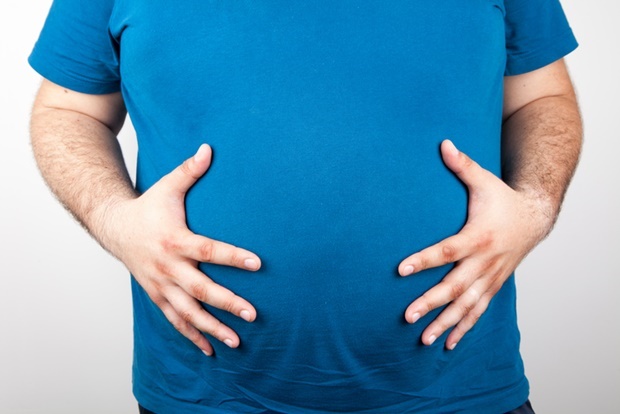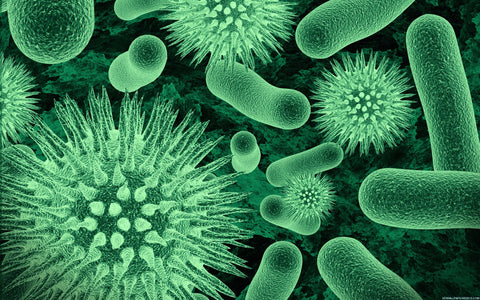
The health benefits of a well-rounded diet have long been documented for several decades. For years people have been aware that eating healthy is a key tool in the prevention of cardiovascular disease, diabetes, and obesity. Individuals who follow a healthy diet also tend to live longer lives than those that consume high amounts of processed food and sugars.
New studies have also shown that diet can impact other aspects of your health and well-being as well.
Did you know that diet can also play a role in your testosterone levels and fertility?
Hi, I’m Sean Torbati. Everyday I practice what I preach by performing strength training, doing regular cardiovascular exercise, and eating a balanced diet. I love this lifestyle because it makes me feel and look my very best. As time has gone on, I’ve found that the benefits of a healthy diet have become even more pronounced. Recent studies have reinforced the notion that diet plays a critical role in sexual health and testicular function.
Let’s take a look at how diet plays a role in fertility status and why you might want to reconsider that extra cookie or piece of cake.
Increased Fertility Problems
A recent study raised some significant points of concern in regards to human reproduction. A meta analysis found that many Western societies have experienced a rapid decrease in sperm count over the last half-century. In fact, between 1973 and 2011, sperm concentration decreased by 50-60% in men from North America, Europe, Australia, and New Zealand (1).
Another study proved to have similar findings. In 2018, a meta-analysis was performed on 936 men of couples seeking infertility treatment. Between just 2000 and 2017—sperm counts declined up to 42% (2). The potential fertility issues don’t just impact quantity, but also quality of sperm count (3).
These significant declines mean that sperm counts have decreased 1.4% on average per year for nearly half a century. As you might imagine, drastic public health concerns have been raised by this type of research.
New findings in the last several weeks have found that diet may have a crucial impact on fertility. A study performed on nearly 3000 Danish men found that a healthy diet may be closely linked to better semen quality and a higher likelihood of fertility.
Each of the young men studied (average age 19) followed a Western, Danish, well-balanced, or vegetarian style of diet. The group following the balanced diet experienced the highest total sperm count followed by the vegetarian diet. On the other hand, the Western diet had the lowest sperm count of all four groups at a rate that was 26 million lower than other groups (4).
Other findings from the study noted that men following the Western pattern of dieting had a lower median ratio of inhibin B to follicle-stimulating hormone along with a lower amount of free testosterone.
Lower Testosterone Levels
Dietary choices impact more than just fertility. Testosterone levels can also be greatly impacted by diet. One study found that individuals who prefer Western style diets high in processed foods such as bread, pastries, dairy, and desserts tend to have unhealthy body composition levels—leading to low serum total T levels and hypogonadism (5).
Having low testosterone can also impact health in numerous ways leading to obesity, decreased muscle mass, and lower sexual drive.
Impact of the Study
The reasons for lower sperm counts over the last half-century are currently up for debate. While environmental risk factors such as pollution and chemical exposure may play a role—their correlation to fertility problems are inconclusive.
Research has indicated that consuming a well-balanced diet may improve sperm count and quality (6). Consume nutrient dense foods such as:
- Seafood
- Poultry
- Nuts
- Whole grains
- Fruits
- Vegetables
Furthermore, men that are a part of couples undergoing fertility treatments should seek to consume antioxidants and omega-3 fatty acids as part of their daily diets.
Making Positive Dietary Choices
Leading a healthy lifestyle and making positive dietary choices can have a tremendous impact on various aspects of life. Aside from negatively affecting body composition—having a diet high in processed foods may also decrease fertility and ability to reproduce. Lower testosterone levels may also occur when following a Western style of diet.
I’m not saying you have to consume chicken and veggies for the rest of your life. Part of the human experience is enjoying our sense of taste. While consuming a slice of cake or eating a piece of candy will not likely cause fertility problems—making positive choices over the course of years can give you the highest probability of a long, healthy life.
Nobody makes perfect dietary choices 100% of the time. While we’re all likely to experience a misstep here or there—we should attempt to make conscious food choices centered around whole foods consisting of lean meats and vegetables. Stay away from processed foods when possible, but be sure to still enjoy an occasional treat.
Being healthy is a lifestyle. If you have any additional questions about how you can improve your dietary choices—feel free to reach out to me for more information. Let’s live a longer, healthier lifestyle together.
Kindest regards,
Sean Torbati - PN Certified Nutritionist | EXOS Phase 3 Training Specialist
Co-Founder, Ambrosia Collective
References:
- https://academic.oup.com/humupd/article/23/6/646/4035689
- https://www.ncbi.nlm.nih.gov/pubmed/30389382
- https://www.ncbi.nlm.nih.gov/pubmed/1393072
- https://jamanetwork.com/journals/jamanetworkopen/fullarticle/2761546?utm_source=For_The_Media&utm_medium=referral&utm_campaign=ftm_links&utm_term=022120
- https://www.ncbi.nlm.nih.gov/pmc/articles/PMC6266690/
- https://www.ncbi.nlm.nih.gov/pubmed/30196939














